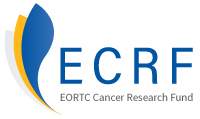PATIENT INVOLVEMENT AT EORTC
Bridging the gap between patients and researchers is essential to improving patient care
As a patient-centered organisation, we seek to engage patients in far more than just clinical trials. We also include patients in the design of research itself, and work to share scientific information in plain language that is easy to understand and apply.
ENGAGING PATIENTS IN RESEARCH DESIGN
When designing clinical trials, we primarily work with two patient groups to review key materials including: the study synopsis, protocol and patient information sheet and informed consent.
Both groups have approximately 150 members amongst whom relevant reviewers are selected to contribute to each EORTC project.
SHARING THE ‘LIVED EXPERIENCE’ OF CANCER
The EORTC Patient Panel shares the ‘lived experience’ of cancer with the EORTC community. The eight member panel includes independent patient advocates, former patients and caregivers. The panel is not cancer-specific and is purposely diverse in terms of nationality, age, gender and life experience.
Every two years, we host Patient Days to raise awareness about opportunities for patients to engage with the EORTC and to provide training opportunities for patient experts. So far, we have hosted four editions of Patient Days, each with 54 patient experts from over 60 organisations.
Through my cancer research involvement I’ve learned about different conditions, treatment developments, basic science, study /trial and service design. I contribute a patient perspective to make a difference. Contributing and collaborating with healthcare professionals and researchers feels a worthwhile way of giving back to the research and medical community to benefit others.
ADVOCACY & PUBLIC POLICY
EORTC plays a major role at European and national levels to alert regulators to the need for independent clinical research conducted without commercial aims. As a key player in clinical research and oncology, EORTC often takes part in EU-level discussions to influence European regulation or the research agenda.
As the biggest cancer-fighting and independent organisation, we see it as our duty to strive and secure political engagement in the fight against cancer at a European level. Cancer research and treatment needs to be embraced by governments to achieve sustainable results.
In addition to the distress that a cancer diagnosis can cause to patients and their families, its treatment represents a huge burden on healthcare systems and national economies. The total economic cost of cancer worldwide in 2010 was estimated at approximately US $1.16 trillion. Major intellectual and financial efforts have meant that many cancers that were previously thought to be incurable can now be successfully treated, allowing patients to resume normal lives.
It is vital we rethink how we can power progress for the benefit of our patients while safeguarding our health systems. In this effort, EORTC officially embarked on the publication of a European manifesto for treatment optimisation, in 2019. Together in a coalition with like-minded partners, we have begun advocating for reforms at the European Parliament that we hope will lead to positive change.
The EORTC initiated action aims to secure the support of the majority or all of the European Union country members, and together, work through critical challenges for health systems today:



